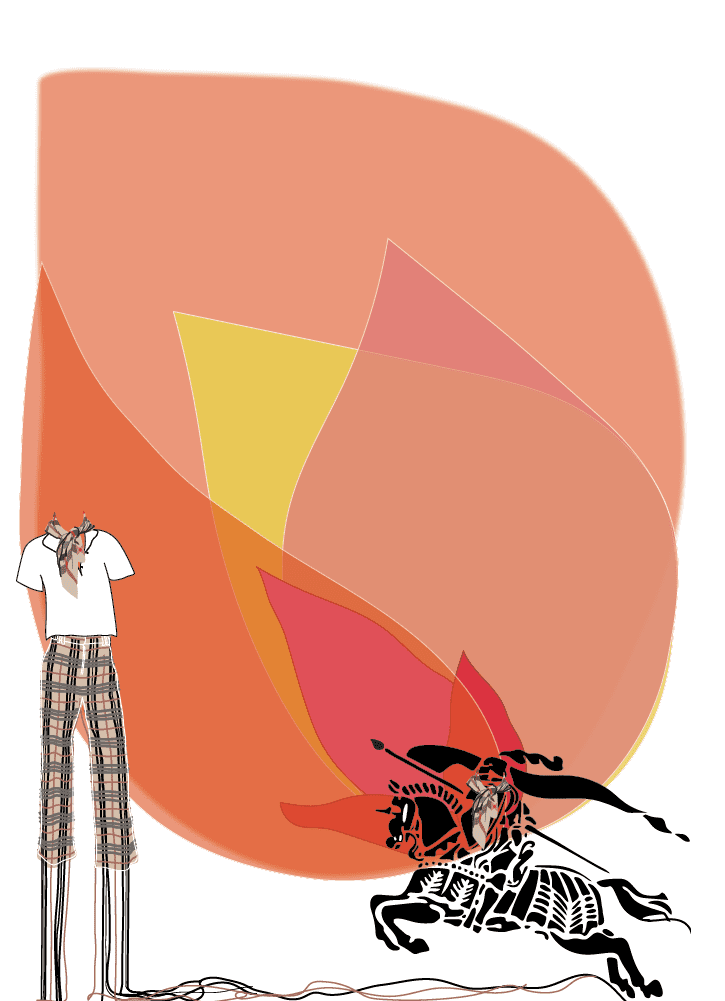Burberry. The word itself elicits a vision of the elusive Birkin bag. For those Gilmore Girls fans out there, think of the bag Logan gives to Rory in season six. If you are less refined, the signature check pattern scarves are just as iconic.
Founded in 1856 in Basingstoke, England, the family-run company began with a focus on creating fashionable outerwear. It mainly produced scarves and trench coats to combat the unbecoming English weather.
Since its inception, Burberry has targeted the wealthiest members of society. Its hefty price tags and limited product releases attract even the most discerning buyers. Throughout the 20th century, Burberry increasingly gained popularity. Today it is now one of the largest luxury fashion brands in the world.
Burberry was perceived to be at the forefront of environmental sustainability within the fashion and textiles industry. They have a strong Global Environmental Policy and have created the Burberry Foundation, the aim of which is to promote global social and environmental wellbeing. On paper, the business appears to be making leaps and bounds into the future of sustainable fashion. However, the physical reality is vastly different.
Recently, the social and environmental integrity of the designer brand has come into question. It was discovered that the brand had incinerated in excess of $50 million of unsold stock in the past year. In the past five years, they have dumped over $150 million worth. Upon initial inspection the figures are dumbfounding. What is even more concerning though is the environmental justification used by Burberry.
According to the brand, burning millions of dollars of unused clothing is (get this) actually a very sustainable business model. Their justification is that they ‘capture’ the energy from burning their stock and reuse it in their operations processes.
Even if Burberry’s claim is true, their techniques are still damaging the environment. The incineration process produces extremely high levels of smoke and pollution. Additionally, it disregards the brand’s ethos. Their production process is supposed to promote social, ethical and environmental progress in the form of sustainable growth. In an interview with the ABC, a spokesperson from Burberry claimed that “On the occasions when disposal of products is necessary, we do so in a responsible manner and we continue to seek ways to reduce and revalue our waste.” The recent discoveries have made it evident that this is not the case.
How is it, that a firm could have an entire society fooled into a false sense of sustainable progress? The answer comes down to a combination of a few factors. These are; marketing, regulations and accountability.
Firstly, marketing. The whole purpose of marketing is to persuade a consumer to purchase products. To do this, evocative terms and approaches are often used to make a product seem more desirable. For instance, buzzwords such as ‘sustainable’ and ‘ethical’ are used to brand products. However, there is no universal standard to which these brands must adhere to coin their product with the term. This often causes confusion amongst consumers. They are led to believe a product is sustainable when in actual fact it may not be.
Secondly, is the issue of regulation. There are little to no regulations on environmental or ethical standards within the fashion industry. This allows firms to operate in whatever way they deem appropriate. In the case of Burberry, this led to the mass burning of excess stock. If there were regulations on a national or global scale, it could prevent brands from exploiting the freedom currently found in the fashion industry.
Lastly, there is accountability. Most businesses are not held accountable for their actions. This is predominately fuelled by the lack of control present within the fashion industry and the fact that almost all large fashion producers exploit the environment. As a result, it is considered the norm.
Individual consumers are also to blame. We continually buy from businesses that exploit the environment to produce high volume, low-quality products. This occurs in response to the high demand for inexpensive goods. If consumers were to boycott such businesses and hold them accountable, a potential shift towards sustainable fashion could be possible.
The way forward comes from a collective effort from individuals, government and businesses. They all play a crucial role in promoting a sustainable and ethical fashion industry. Hopefully, by doing so, we can avoid another ‘Burberry incident’ in the future.
We acknowledge the Ngunnawal and Ngambri people, who are the Traditional Custodians of the land on which Woroni, Woroni Radio and Woroni TV are created, edited, published, printed and distributed. We pay our respects to Elders past and present. We acknowledge that the name Woroni was taken from the Wadi Wadi Nation without permission, and we are striving to do better for future reconciliation.
